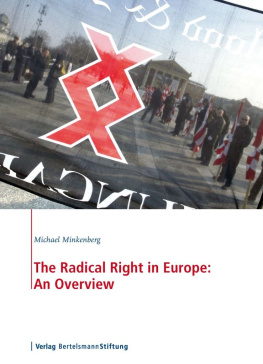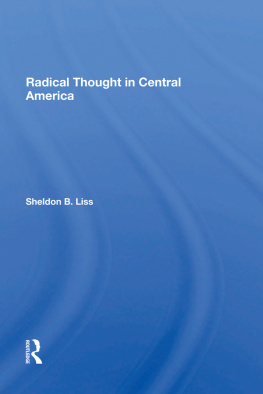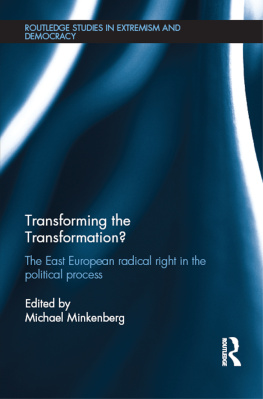Klaus Wahl
Psychosocial Analyses and Prevention - Information System (PAPIS), Munich, Germany
ISBN 978-3-030-25130-7 e-ISBN 978-3-030-25131-4
https://doi.org/10.1007/978-3-030-25131-4
The Editor(s) (if applicable) and The Author(s), under exclusive license to Springer Nature Switzerland AG 2020
This work is subject to copyright. All rights are solely and exclusively licensed by the Publisher, whether the whole or part of the material is concerned, specifically the rights of translation, reprinting, reuse of illustrations, recitation, broadcasting, reproduction on microfilms or in any other physical way, and transmission or information storage and retrieval, electronic adaptation, computer software, or by similar or dissimilar methodology now known or hereafter developed.
The use of general descriptive names, registered names, trademarks, service marks, etc. in this publication does not imply, even in the absence of a specific statement, that such names are exempt from the relevant protective laws and regulations and therefore free for general use.
The publisher, the authors and the editors are safe to assume that the advice and information in this book are believed to be true and accurate at the date of publication. Neither the publisher nor the authors or the editors give a warranty, express or implied, with respect to the material contained herein or for any errors or omissions that may have been made. The publisher remains neutral with regard to jurisdictional claims in published maps and institutional affiliations.
This Palgrave Macmillan imprint is published by the registered company Springer Nature Switzerland AG.
The registered company address is: Gewerbestrasse 11, 6330 Cham, Switzerland
Preface
A specter is haunting the worldthe specter of the radical right. The surge of social and political phenomena like xenophobia, racism, authoritarianism, nationalism, right-wing populism, radicalism, extremism, and violence against asylum seekers, migrants and politicians in many countries makes citizens, journalists, scientists, and politicians concerned about the stability of democratic societies. Some authors even consider the possibility of the abolition of democracy as a result of democratic elections.
What happened in the last years? In Hungary, the right-wing populist party Fidesz of Viktor Orbn ruled from 1998 to 2002 and again since 2010. In Russia, nationalist propaganda played a role beyond the takeover of the Crimea in 2014. During his tenure, President Vladimir Putin has continued to use increasingly populist and nationalistic rhetoric. In Poland, after being part of a coalition government from 2005 to 2007, Jaroslaw Kaczyskis nationalist party Law and Justice has led the country since 2015. In 2016, the worldincluding political scientistswas surprised about the United Kingdoms nationalistic vote for Brexit and right-wing populist Donald Trumps victory in the US presidential election, which was accompanied by a wave of racist and anti-Muslim rhetoric, hate, and violence. In Austria, the presidential candidate of the populist right Freedom Party of Austria , Norbert Hofer, won nearly half of the votes. Marine Le Pens National Front (since 2018 National Rally ) has attracted a large part of the French population. In the 2017 German federal election the nationalist party Alternative for Germany (AfD) was the third largest party and the overall winner in parts of East Germany, where there were also movements like the anti-Islamist PEGIDA (Patriotic Europeans Against the Islamization of the Occident) with aggressive gestures and slogans against parliamentarians and journalists. In 2017, too, a constitutional referendum in Turkey opened the way for an autocratic system under nationalist President Recep Tayyip Erdogan. In 2018, the right-wing populist Italian party Lega formed a coalition government with the populist Five Star Movement in Italy. In 2019, Brazils far-right president Jair Bolsonaro took office and several military officers were appointed to his cabinet. In the same year, a right-wing extremist in New Zealand killed 50 Muslim worshippers. This list could be expanded.
The shadow of the radical right haunting the world feels like dj vu . There have been similar spectersfrom right wing populism to extremismas parts of the history of many countries. To name but a few: the nineteenth and twentieth century saw battles of the North American right (Protestant groups, Ku Klux Clan , etc.) against racial, ethnic, and cultural pluralism as well as against political, economic, and cultural elites. In the twentieth century, Germanys National Socialists left blood, death, and devastation in many countries. Even after the Holocaust, racism and nationalism remained strong ideologies in large parts of the world. In recent decades, somewhat more moderate forms of the radical right have spread throughout both sides of the Atlanticthe populist right. In the twenty-first century, in particular, the terrorist attacks during and after 9/11, the financial and economic crises, and the flows of refugees and immigrants to western countries seem to have been crucial events that continue to shape the socio-political landscape on the right side of the political spectrum with radical right-wing parties and movements and influencing the whole political system.
There is a lot of media coverage of populist and radical right parties, movements, anti-Semitism, anti-Islamism, hate speech, and racially motivated crimes. Many scientists from history, political science, and sociology present empirical studies on these phenomena. However, the question remainsdoes this amount of research in different countries (e.g., in Western, Central, and Eastern Europe and the United States) lead to converging theories and empirical results to explain these phenomena? Unfortunately, there are diverging results and contradictory theories. This shortcoming was one of the motives for writing this book.
Another motive was that there seem to be two rather separated types of research. On the one hand, research of academic disciplines like history, economy, sociology, and political science focus on historical, economic, social, and political manifestations of the radical right like political parties, movements, and ideologies . They are also interested in possible causes of these political phenomena like nationalist traditions, economic crises, immigration, or the failure of governments. On the other hand, psychologists, behavior scientists, brain researchers, and so forth study pre-political causes, conditions, catalysts, and triggers of radical right-wing phenomena like xenophobia, prejudices, and authoritarianism as well as their roots in personality development, socialization, and evolution. Would it not be helpful to integrate all these findings into more comprehensive explanations of political phenomena? Such interdisciplinary (biopsychosociological) models could also disclose strategic factors that could serve as starting points for preventive measures against xenophobia, racism, and violence to make prevention more effective. There is a need for such interdisciplinary, empirically based prevention programs given that most of the existing measures seem to be primarily inspired by folk psychology and an overly optimistic belief in political education and welfare programsand they are not very effective.













